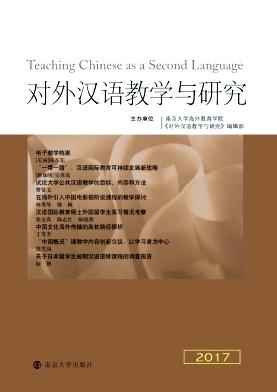An Investigation into the Roles of Guessing and Partial Knowledge in the Vocabulary Size Test
引用次数: 1
Abstract
Although an accurate measure of vocabulary size is integral to understanding the proficiency of language learners, the validity of multiple-choice (M/C) vocabulary tests to determine this has been questioned due to users guessing correct answers which inflates scores. In this paper the nature of guessing and partial knowledge used when taking the Vocabulary Size Test (VST) is examined. The analysis evaluates the thought processes of test takers through think-aloud protocols and self-reports. This provides a taxonomy of seven types of guesses used by learners while taking the VST and measures the frequency of their occurrence. Based on qualitative coding, guesses are investigated to determine if they exhibit partial word knowledge which is relevant to the test construct. The findings suggest that both guesses resulting from the use of partial knowledge and random guesses are included in estimates and this has a detrimental effect on test accuracy. The paper concludes that the VST does not provide an accurate measure of the vocabulary necessary for reading due to guessing and the meaning-recognition format. It also suggests that the role of partial knowledge should be considered when producing more sophisticated vocabulary tests in the future.猜测和部分知识在词汇量测试中的作用研究
虽然准确测量词汇量对于理解语言学习者的熟练程度是不可或缺的,但由于用户猜测正确答案导致分数膨胀,因此用于确定词汇量的多项选择(M/C)词汇测试的有效性受到质疑。本文对词汇量测试中猜测和部分知识的性质进行了研究。该分析通过有声思考协议和自我报告来评估考生的思维过程。这提供了学习者在使用VST时使用的七种猜测类型的分类,并测量了它们出现的频率。在定性编码的基础上,对猜测进行调查,以确定它们是否表现出与测试结构相关的部分单词知识。研究结果表明,由于使用部分知识和随机猜测而产生的猜测都包含在估计中,这对测试准确性有不利影响。本文的结论是,由于猜测和意义识别格式的原因,VST不能准确测量阅读所需的词汇量。它还表明,在未来制作更复杂的词汇测试时,应该考虑部分知识的作用。
本文章由计算机程序翻译,如有差异,请以英文原文为准。
求助全文
约1分钟内获得全文
求助全文

 求助内容:
求助内容: 应助结果提醒方式:
应助结果提醒方式:


